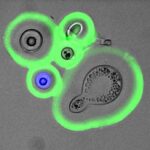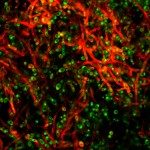Lien vers Pubmed [PMID] – 38556212
Lien DOI – 10.1016/j.cmi.2024.03.031
Clin Microbiol Infect 2024 Mar; ():
We aimed to describe features and outcomes of cryptococcosis among HIV-seronegative individuals in a large surveillance network for cryptococcosis in France.We included incident cases of cryptococcosis in HIV-seronegative individuals from 2005 to 2020. We compared patient characteristics, disease presentations, cryptococcal antigen (CrAg) results, and induction antifungal treatments according to underlying disease. We examined factors associated with 90-day mortality. Among patients with disseminated infections, we investigated whether receipt of flucytosine and polyene combination was associated with lower mortality.Among 652 individuals, 209 (32.1%) had malignancy, 130 (19.9%) were solid-organ transplant (SOT) recipients, 204 (31.3%) had other immunocompromising conditions, and 109 (16.7%) had no reported underlying factor. The commonest presentations were disseminated infections (63.3%, 413/652) and isolated pulmonary infections (25.3%, 165/652). SOT patients were most likely to have disseminated infections and a positive serum CrAg result. Patients with malignancy were older and less likely to receive a flucytosine-containing regimen for disseminated infections than others (58.7%, 78/133 vs. 73.2%, 194/265, p=0.029). The crude 90-day case-fatality ratio was 27.2% (95%CI: 23.5%-31.1%). Age ≥60 years (aOR: 2.75 [1.78-4.26], p<0.001), meningitis/fungaemia (aOR: 4.79 [1.80-12.7], p=0.002), and malignancy (aOR: 2.4 [1.14-5.07], p=0.02) were associated with higher 90-day mortality. Receipt of flucytosine and polyene combination was associated with lower 90-day mortality (aOR: 0.40 [0.23-0.71], p=0.002) in multivariable analysis and inverse probability of treatment weighted analysis (aOR: 0.45 [0.25-0.80], p=0.006).HIV-seronegative individuals with cryptococcosis comprise a wide range of underlying conditions with different presentations and outcomes, requiring a tailored approach to diagnosis and management.








